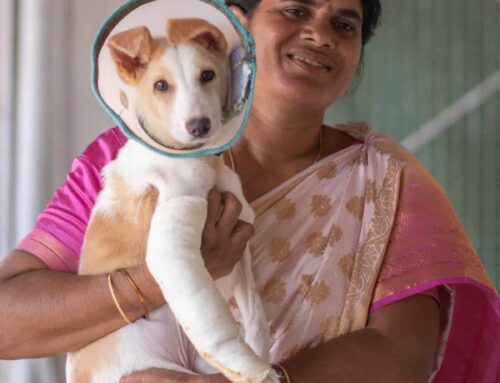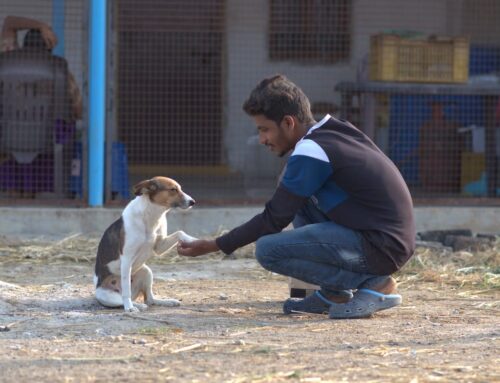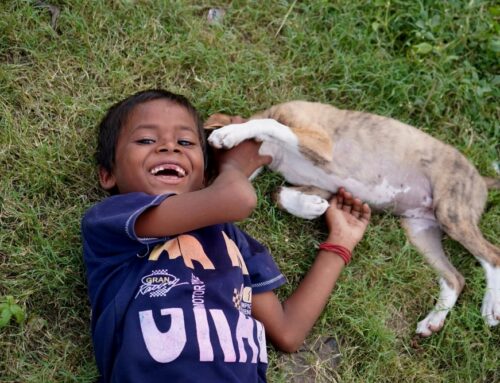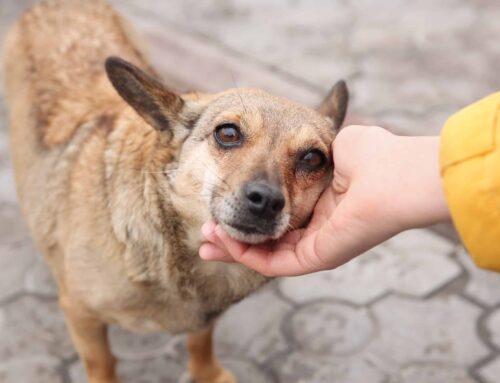Pariah? No. Desi? Yes!
There’s a belief these days that the Indian pariah dog isn’t fit for human companionship. It’s said that they are too skittish to be guard dogs, too wild to be pets. Nothing could be further from the truth.
The Indian pariah dog has been in India for at least 6,000 years; long enough that the many languages of India have their own words for them. They are called deshiya naayi, theru naai, deshi kutta: but they all amount to native dog (Khalap). It was the British who first gave them this name so that they could import and sell European dogs locally. Given their long tenure among humans, we can see that they are no pariahs. In fact, it was the British who really popularized this name as a means to import and sell European dogs locally (Rajesh). So, let’s call them Indian native dogs, or INDog for short.
Perfectly Adapted
The INDog has something better than a pedigree, they have the approval of Mother Nature. Rather than being a pure breed, they are a landrace breed. Whereas humans chose the traits of purebred dogs through selective breeding, the INDog evolved naturally to have the features they do today (Choudhary-Mahajan).
They are tolerant of the varied climates of India. They love the cold and the heat, something that can be said for very few foreign dogs.
INDog owners have low veterinary bills as well. These dogs have very hardy immune systems, owing to their millennia of adaptation to local illnesses. There are also many stories of people taking in native dogs, wounded and whimpering, and after a short time of proper care, they’re wagging their tails and looking to play.
Smart, Loyal, Independent, Beautiful
Indian native dogs are “much more intelligent… than most pedigreed breeds” (Sharma). They can navigate the busy streets of urban India as well as they can find food among the villages. These are tasks that many people might have a hard time with. INDog owners report their dogs needing little in the way of training; they just pick up commands naturally.
Our curve-tailed friends are incredibly loyal to their families. They protect the home, barking at strangers and strays. Despite their love for their families, they can be a little standoffish with strangers until a family member gives approval. To push home the idea that the INDog can protect a home, here is a video of one chasing off a leopard:
https://www.youtube.com/watch?v=p-a3P-u6vpM
Here’s a video of street dogs in Hyderabad protecting men they don’t even know:
https://www.youtube.com/watch?v=ELBqzDU2r4E
INDogs are also very independent. They can be trusted to hang out at home while you’re at work, provided that they have a nice place to lay down and a few toys. Like any dog, they need to be walked and played with, but they tend not to be needy.
And, they are beautiful. They have a noble bearing with pointy, alert ears. Few breeds of dog vary in color as widely as the INDog. They tend toward light to reddish brown, but there are black ones as well. Some of them are spotted, others have broad areas of white mixed with other colors.
Adoption
There are millions of INDogs looking for families to be a part of, for homes to protect. We work hard at the Stray Animal Foundation of India to keep them safe and healthy, but we only have so much space. If you’re in the market for a canine companion, skip the breeder and head to a shelter. Your new best friend will be waiting for you.
Charkrabarti, Pratik. “Beasts of Burden: Animals and Laboratory Research in Colonial India.” History of Science, vol. 48, no. 2, 2010, pp. 1. Sage Journals, https://journals.sagepub.com/doi/10.1177/007327531004800201?url_ver=Z39.88-2003&rfr_id=ori%3Arid%3Acrossref.org&rfr_dat=cr_pub%3Dpubmed&. Accessed 22 Mar. 2022.
Choudharay-Mahajan, Lina. “Paws for Thought.” Hindustan Times. 12 Jul. 2011, par. 3. www.hindustantimes.com/entertainment/paws-for-thought/story-YNym7MKVc2axiKZncw3ZIK.html. Accessed 22 Mar. 2022.
Khalap, Rajashree. “Archaeological Record for the Domestic Dog Canis Familiaris In India.”
http://indog.co.in/archaeological-record-for-the-domestic-dog-canis-familiaris-in-india/
Accessed 22 March 2022.
Rajesh, Rohan. “Pariah in Name Only.” The Internationalist. Apr. 20. https://theinternationalistunc.org/ir-blog/pariah-in-name-only. Accessed 22 March 2022.










Leave A Comment